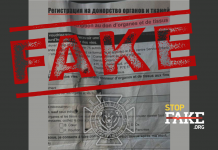The Ukrainian parliament recently passed a resolution on the “departure from certain commitments defined by the International Covenant on Civil and Political Rights and the Convention for the Protection of Human Rights and Fundamental Freedoms.” Basically, it acknowledges that the Ukrainian government can no longer guarantee the protection of human rights in certain war zones – i.e. that it is not able to have a physical presence in these areas to do so.
Predictably enough, Russian media spun it differently.
On May 21, TASS ran with the following headline: “Ukraine Refuses to Guarantee Protection and Respect for Human Rights in the Area of Military Operation.”
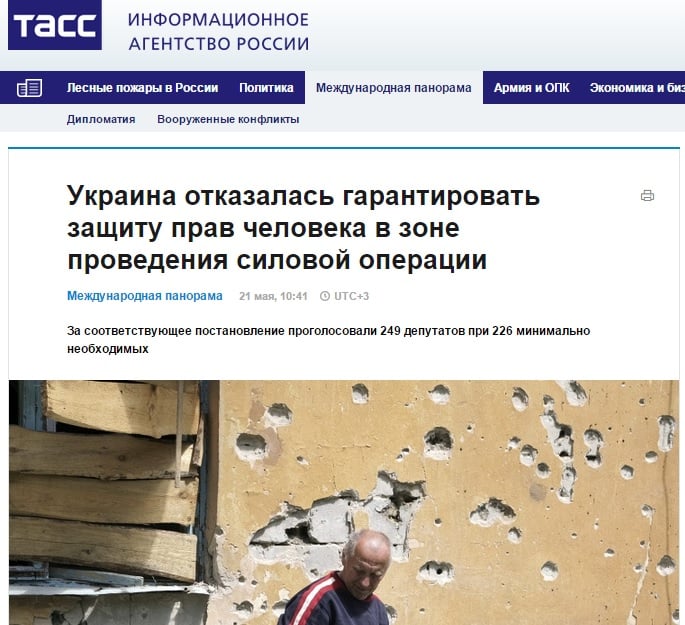
NTV announced: “The Rada [Ukraine’s parliament] Celebrated the Day of Vyshyvanka by Refusing to Respect Human Rights and Denouncing Treaties with Russia.” “Ukraine has a right to forget about human rights in order to protect its own interests,” its journalist said.
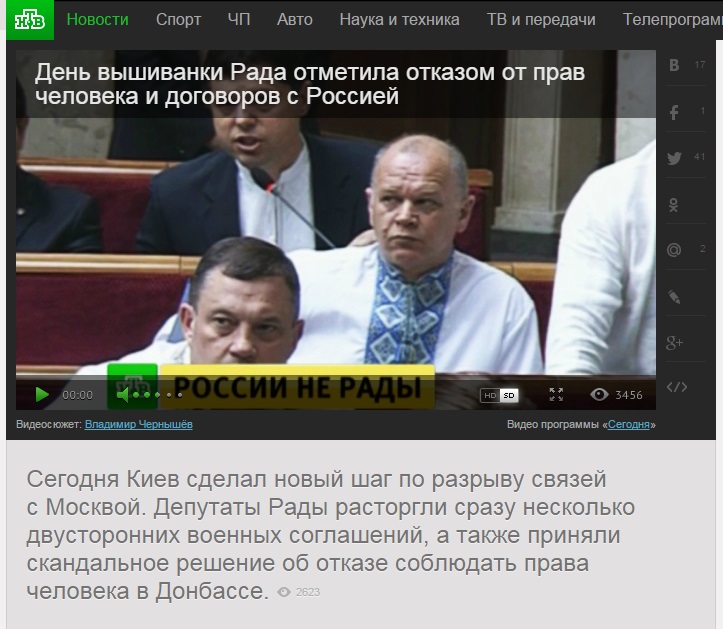
Television network Russia 24 reported that “Ukraine had refused to respect the human rights on the southeast of the country”. Moreover, its correspondent claimed that from the moment of the resolution, Ukrainians could no longer take their complaints to the European Court of Human Rights.
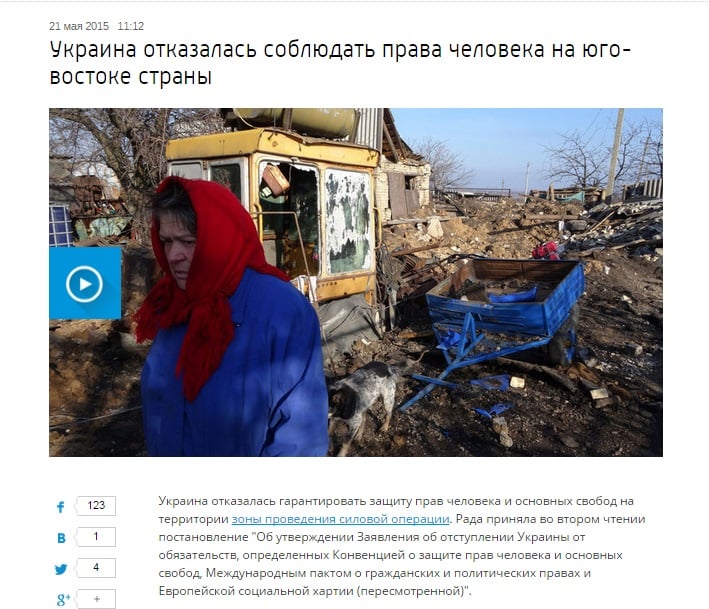
Deputy chief-editor of Komsomolskaya Pravda, Marina Perevozkina, called the parliament resolution “the legitimization of the genocide in Donbas” and “the first time in history when a state openly withdraws from the Convention on Human Rights.”
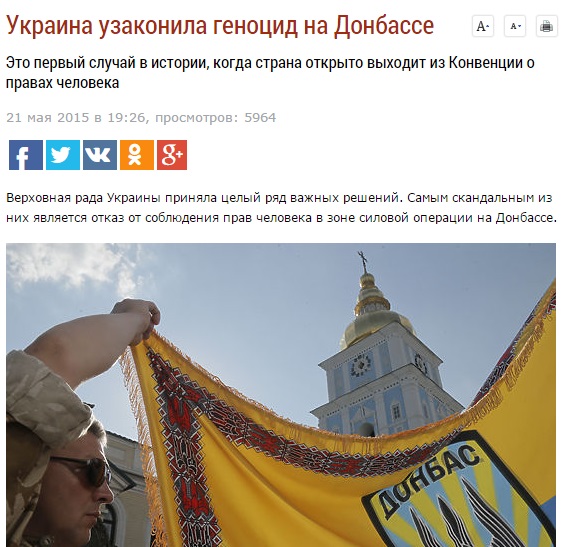
Human-rights activists and experts disagree. Stopfake asked the executive director of the Amnesty International office in Ukraine, Tetiana Mazur, to comment and she said there was nothing iniquitous in the resolution: It means, she said, the state simply has no physical access to certain areas, and than it cannot guarantee the complete protection of human rights in those areas.
First of all, Ukraine has not broken international law. According to Mazur, as Ukraine joined international treaties and undertook certain human-rights commitments, it can also withdraw from them. The provisions of the International Covenant (Paragraph 1, Article 4) and the Convention (Paragraph 1, Article 15) permit participating countries to withdraw from certain provisions in cases of war and natural disasters. Ukraine has used this option.
Second, Ukraine is not pulling away from all its obligations to protect the human rights, but only from those that it cannot provide because of the state’s physical absence in uncontrolled territories. For example, it cannot provide public services, police protection, and courts of justice in these areas.
Actually, the changes were adopted by parliament as far back as August 2014 and February 2015 in four laws (which are mentioned in paragraphs 5-8 of the Resolution). These focus particularly on terms of preventive detention, a special mode of prejudicial inquiry, the change of the territorial jurisdiction for cases within the jurisdiction of the courts in the ATO area, restrictions on being outside at certain times without documents, and restrictions on movement.
Third, there are fundamental obligations to protect human rights that a state cannot refuse under any circumstances. These are the right to life and the prohibition against torture.
As for the impossibility to make a complaint to the European Court of Human Rights, this claim is correct, according to Mazur. The residents of the occupied territories cannot make a complaint to the European Court. But this only applies to issues specified in the resolution.





